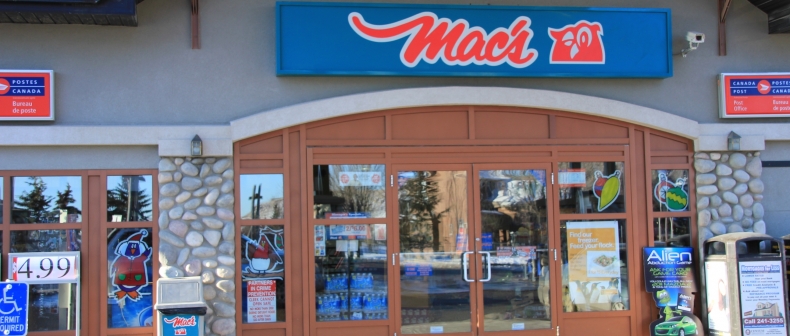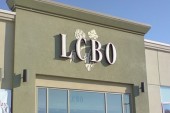
Tom Moher wants to continue the discussion and, realistically, it’s the best he can hope for right now. Even if his makes his points effectively, he still has to work with others that would rather see him muzzled.
Armed with statistics and public opinion that support his case, he nevertheless has to be careful with his words. Currently, as V.P. of Operations for Central Canada for Mac’s Convenience Stores, he oversees two locations in this province selling beer, wine, and spirits. Nearly 540 other locations in Ontario do not, and Moher would like to change that.
Unlike so many other critics of the current regime, he doesn’t advocate replacing the LCBO. Mostly he talks about “augmenting” the system. Most of his network is found in rural and suburban areas of province, and those regions, he feels, are the most underserved.
He understands the LCBO is an enormous source of cash for causes and swears his company only wants to add to that. “The province,” he insists, “is leaving money on the table, because if they expand distribution they can also expand revenue.
***
What Mac’s is proposing shouldn’t be controversial. Building on the experience of their liquor-stocked stores in Thamesford and Craigleith (and the 5,000 others that Mac’s parent company — Quebec-based Couche-Tard — sells booze from worldwide), Moher aspires to an Ontario where consumers can walk into any convenience store — but Mac’s, ideally — and grab a six pack with their nachos and lottery tickets.
“Our store in Thamesford — I’m very proud of that store. That store there is a great example of what success could look like in this province. We’ve operated an LCBO agency store for ten years plus, now. We had a 1,500-square-foot store. We purchased ten acres across the street, and built a 3,500-square-foot building. We added a gas installation to that store; we brew fresh coffee there; we have an expanded convenience store,; we have an expanded LCBO and Beer Store there,” explains Moher.
“We spent $3,000,000 on that store, and we would continue to spend that kind of money across the province of Ontario, either retrofitting stores or building new stores. And that’s private dollars. That’s not government dollars. That’s not the hundreds of millions of dollars that get talked about potentially building new LCBOs.”
***
As ridiculous as it is that three foreign brewers own The Beer Store, Moher doesn’t concern himself with that. He should, but he doesn’t. I purposely bait him with it, trying to pry out some nugget of bitterness, but the most he’ll give me back is an expression of sympathy for the craft brewers that have to deal with them.
The two Mac’s agency stores that currently operate do so with The Beer Store and LCBO on site, but still staffed by Mac’s employees. So even though I suspect Moher appreciates how absurd our current liquor retail environment is, he can’t go around smack-talking his suppliers. In the Craigleith store, for instance, “we used to have to go to pick up our product from the LCBO. Now we’re getting delivery directly from the LCBO. The LCBO now has an employee coming on our lot. Now somebody has more hours on their side. I see the LCBO expanding their role as a wholesaler and distributor.” In other words, Moher feels if the government is worried about the appearance of putting jobs at risk, this is an easy offset.
It’s not difficult to see why the LCBO would shy away from increased competition. For years the Crown corporation has dealt with complaints about its unresponsiveness by ignoring its critics. Put liquor into the hands of leaner organizations that are better connected to the communities they serve, and the LCBO would have to learn to compete quickly or cease to be relevant as a retailer.
To its credit, the LCBO has made great strides in supporting the craft beer community. Whereas a few short years ago it blocked labels like Flying Monkeys for daring to call its beer “Smashbomb,” now there’s a lot more recognition that the public isn’t as uptight as management assumed. Using Ontario Microbrewery Strategy dollars, it’s now increasing visibility of our local brewers (more on that later). The recent launch of the LCBO’s Beer World shows that it’s finally giving grain the kind of respect long given to grapes. However, that still doesn’t address the LCBO’s less-than-convenient retail environment.
It’s even easier to see why The Beer Store would shudder at the prospect of more players in the game. At present, customers can typically only pick between the government shop or theirs. Ontarians are subject to what is essentially unspoken collusion; the LCBO sets the prices artificially high, safe in the knowledge that the Beer Store won’t charge less (or more). Consumers are then asked to buy beer at whichever destination is less inconvenient.
Craft brewers have to pay their way in to The Beer Store. In other words, when Wellington Brewery got its product listed, a government-mandated kickback went to Labatt (AB-InBev, of Belgium), Molson (MolsonCoors, of Colorado) and Sleeman (Sapporo, of Japan). What do you think the likelihood is that Ontario craft brewers would continue to associate with the companies that try to keep them down, if they could have their product retailed more efficiently by a non-competing interest like convenience stores? Sales of mega-brewed beer is on the decline. If craft brewers pulled their support from The Beer Store, Molson, Sleeman and Labatt wouldn’t just lose listing fees, they would lose valuable foot traffic.
What’s more, they would probably have to drop their prices if they had more competition. Although Mac’s isn’t permitted to sell beer in Alberta, grocery stores there can, and nearly every week you can log on to online flyers and find Molson and Labatt product sold for a lot less than The Beer Store will give it to you here.
Publicly, at least, the craft brewers seem content. Last week, Minister for Economic Development, Trade and Employment Eric Hoskins brought his entourage to Steam Whistle for the announcement of a two-year extension to the Ontario Microbrewery Strategy. For the 41 members of the Ontario Craft Brewers, this means another $1.2 million next year and again the year after.
“This money,” according to OCB President John Hay, “will be used to continue building the OCB brand, increasing visibility in LCBO stores, advertising, web and social marketing, events like Craft Beer Week and the OCB conference… and carefully looking at export opportunities.”
Officially, the OCB doesn’t have a position on the topic of expanded retailing options, but really how could it? To speak against a government that controls what gets sold at the LCBO and also hands out taxpayer dollars would be risky for all involved, even though craft brewers would clearly benefit by having more access at the community level.
***
In June, Ontario Finance Minister Charles Sousa said he wouldn’t rule out allowing convenience stores to sell alcohol. This came on the heels of Mac’s claiming they would create 1,600 new jobs if given the chance to sell liquor at each of their 540 shops in Ontario. That coincided with the release of study that showed the province would collect more revenue by expanding the availability of liquor to convenience stores.
The 25-page document, produced by Professor Anindya Sen, an Associate Professor in the Department of Economics at the University of Waterloo, examines not only Economic Theory (“the concept of product differentiation, which is a core concept in Industrial Organization theory”), but also studies the effect of full and partial privatization in provinces like British Columbia and Alberta.
It concludes “that increasing competition in the retail alcohol market is significantly correlated with an increase in per capita gross revenue, net income, and government revenue reported by liquor authorities,” and “government and consumers in Ontario should strongly benefit from some increased competition in the retail sale of alcohol.”
But almost immediately after Minister Sousa floated the possibility of expanding availability, the Premier shot it down. “It’s not under consideration at this point,” Kathleen Wynne told reporters in Ottawa. “I think we have a good distribution network of alcohol right now.”
Hoskins also says the public is also happy with the current model. “Well I think we’re serving Ontarians well with the current system of distribution,” he mentioned at last week’s funding announcement. “You know there was a survey that was done recently that showed, I think almost 85 per cent of Ontarians are satisfied with the current system for distribution of wine, alcohol and beer.”
True, Ontarians might be satisfied, but Moher points to another study that shows most respondents still want to be able to buy liquor in convenience stores. Last summer, stores across the province collected more than 112,000 signatures asking Queen’s Park to allow “the convenience of buying alcohol at responsible community convenience stores.”
Says Moher, “… that petition is the single largest petition put forward to Queen’s Park. I would look at the single largest petition as an issue that needs to be explored and discussed further.”
Most would agree, but the government of the day — despite falling deeper into minority territory following Thursday’s byelections — doesn’t want to talk about it.
____
Dan Grant is a Prud’homme certified Beer Specialist. Follow him on Twitter at @BrewScout.
For more, follow us on Twitter at @torontostandard and subscribe to our Newsletter.














